Learn more about the faculty members who will be leading Arrive Ready programming this summer.
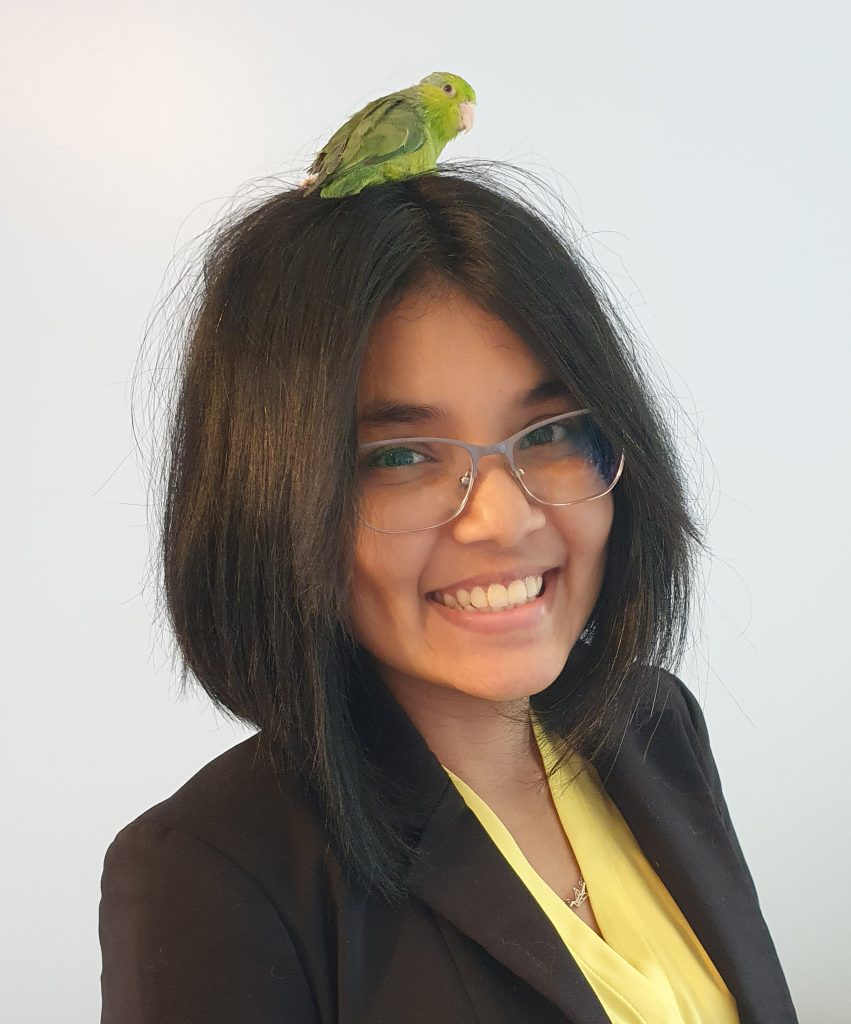
Sadia Sharmin, Arrive Ready to Study Computer Science
Welcome to U of T! I’ve been part of the U of T Computer Science community for many years, in a variety of roles: undergraduate student (I was a CS student myself, at the U of T Mississauga campus), Teaching Assistant, part-time professor at UTM starting from 2015 and now, a full-time Assistant Professor, Teaching Stream here at the St. George campus. I’m pictured here with Dr. Chirly, the pocket-sized parrot.
Learn more about Professor Sharmin
This year, I’m also our department’s CMP1 Faculty Advisor, which means I’m going to be available throughout the year if you ever want to chat about your first-year experience (not just related to academics).
My research interests are pedagogy of kindness, mental wellness and making CS more accessible, engaging and inclusive, especially for beginner students.
When I’m not at U of T, I’m probably watching Netflix (K-dramas and Bollywood movies included), trying out a new restaurant (recommendations are welcome!) or enjoying life with my three cats, two dogs and one bird.
Visit my website to learn more!

John Rogers, Arrive Ready to Study Humanities
Having taught for three decades at Yale University in the U.S., I moved to Canada three years ago, thrilled with the opportunity to teach the amazing students at U of T. My academic field of specialization is Renaissance English literature and I regularly teach the work of John Milton, author of the epic poem Paradise Lost. Currently, though, I have the honour of teaching the course Literary Traditions, which introduces some of the great classics of world literature to first-year students.
Learn more about Professor Rogers
Favourite thing about teaching: Nothing is more exciting than teaching a work of literature that shocks and delights students with its mystery and beauty. If my students aren’t blown away by the surprising genius of a great work of literature, then I know I haven’t taught it right.
What can students expect from Arrive Ready to Study Humanities: You’ll get a sense of how it feels and what it means, to be baffled by a work of writing and you’ll come away with some strategies for converting that unsettling experience of confusion into a higher state of understanding.
Top tip for new students: Allow yourself to take pleasure in ideas and problems you don’t fully understand.
Outside the classroom: Current interests include (in no particular order) running, coffee and revisiting the masterpieces of ’40s and ’50s film noir.
Favourite thing about U of T: The university’s exhilarating location smack-dab in the middle of one of the world’s great cities.
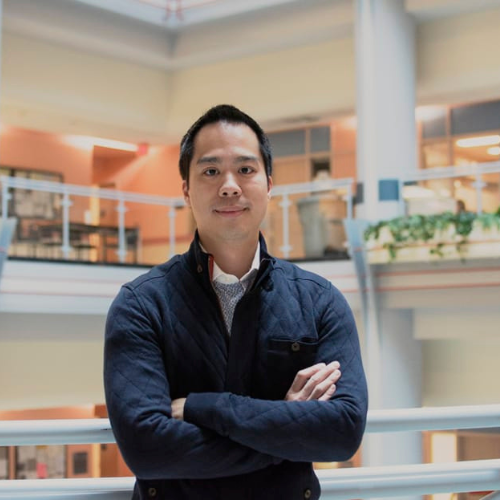
Kenneth Yip, Arrive Ready to Study Life Sciences
I’ve been teaching with the Department of Cell & Systems Biology at the University of Toronto since 2010. Students will typically see me in first and/or second year, as I teach the large undergraduate biology classes. I also run a cancer research team at the Princess Margaret Cancer Centre, University Health Network and am the Scientific Director of Anticancer.ca.
Learn more about Professor Yip
Favourite thing about teaching: I enjoy discussing how human health is impacted by alterations in fundamental biological mechanisms.
What can students expect from your Arrive Ready module? This year, the theme is cancer — something that will unfortunately affect everyone’s life in one way or another. We’ll review basic cellular and molecular biology, discuss how these basic processes are altered in cancer cells and learn about practical everyday changes that can help decrease our cancer risk.
Top tip for new students: Put in your best effort to meet new people and expand your social circle. Learn from the diverse range of perspectives, backgrounds and cultures.
Outside the classroom: I’m a huge Formula 1 fan.
Favourite thing about U of T: Toronto. I hope students can find time to enjoy the city!
For more information, visit kennethwyip.com.
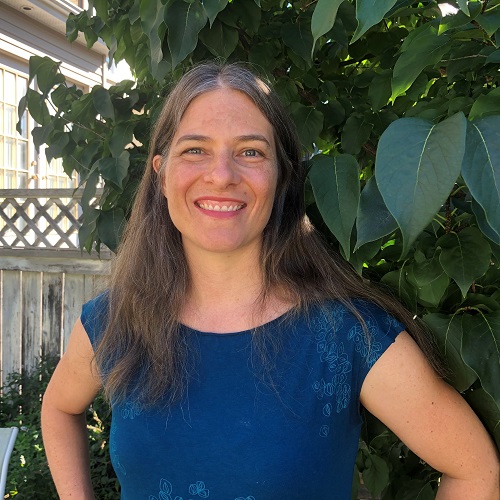
Kristine Quinlan, Arrive Ready to Study Life Sciences (Chemistry)
I have been a faculty member in the Department of Chemistry for over 15 years and I teach the large first-year course for Life Science students, CHM 135 and CHM 136. Over 20,000 students have attended my classes, a number that I find both humbling and inspiring!
Learn more about Professor Quinlan
Favourite thing about teaching: I love teaching incoming first-year students and being part of their transition to learning at the University of Toronto. There is such energy and enthusiasm in the CHM 135 and CHM 136 classes and I feel honoured to be a part of their first courses here.
In terms of teaching chemistry, my favourite part is making connections to our everyday lives. Chemistry is truly everywhere and it is fun and rewarding to get a deeper understanding of phenomena we see routinely.
What can students expect from your Arrive Ready module? The Chemistry part of Arrive Ready to Study Life Science is designed to address any gaps in prior knowledge in the high school math and chemistry topics that are essential for the first-year chemistry courses. Having a solid grounding in these ideas will allow you to focus on the new chemistry we will be learning in CHM 135 and CHM 136 and help with the transition to learning chemistry at the university level.
Top tip for new students: Over your undergraduate years, you have the opportunity to grow so much as a person, intellectually, socially and emotionally, but this requires getting out of your comfort zone. Embrace the opportunities at U of T! Be open to the learning! Find your community on campus!
Outside the classroom: My partner, an evolutionary geneticist, and I have two kids (15 and 18 years old). We enjoy travelling as a family, playing board games and exploring the diverse and excellent restaurants in Toronto. We are also animal-lovers and our household includes a dog, two toads, a gecko and a corn snake. I also spent a few hours every week in the pottery studio, throwing cups, bowls and teapots. Art, of some form, has been an important part of my life since high school and is important to my wellbeing.
Favourite thing about U of T: Without a doubt, my favourite thing at U of T is the people. I love working with my colleagues, both faculty and staff, to make learning chemistry engaging for students and to introduce incoming students to life at U of T. Teaching has been a passion of mine since graduate school and working with students, in class, during student hours and one-on-one is the highlight of my job. While U of T is a large university, there are wonderful smaller communities on campus.
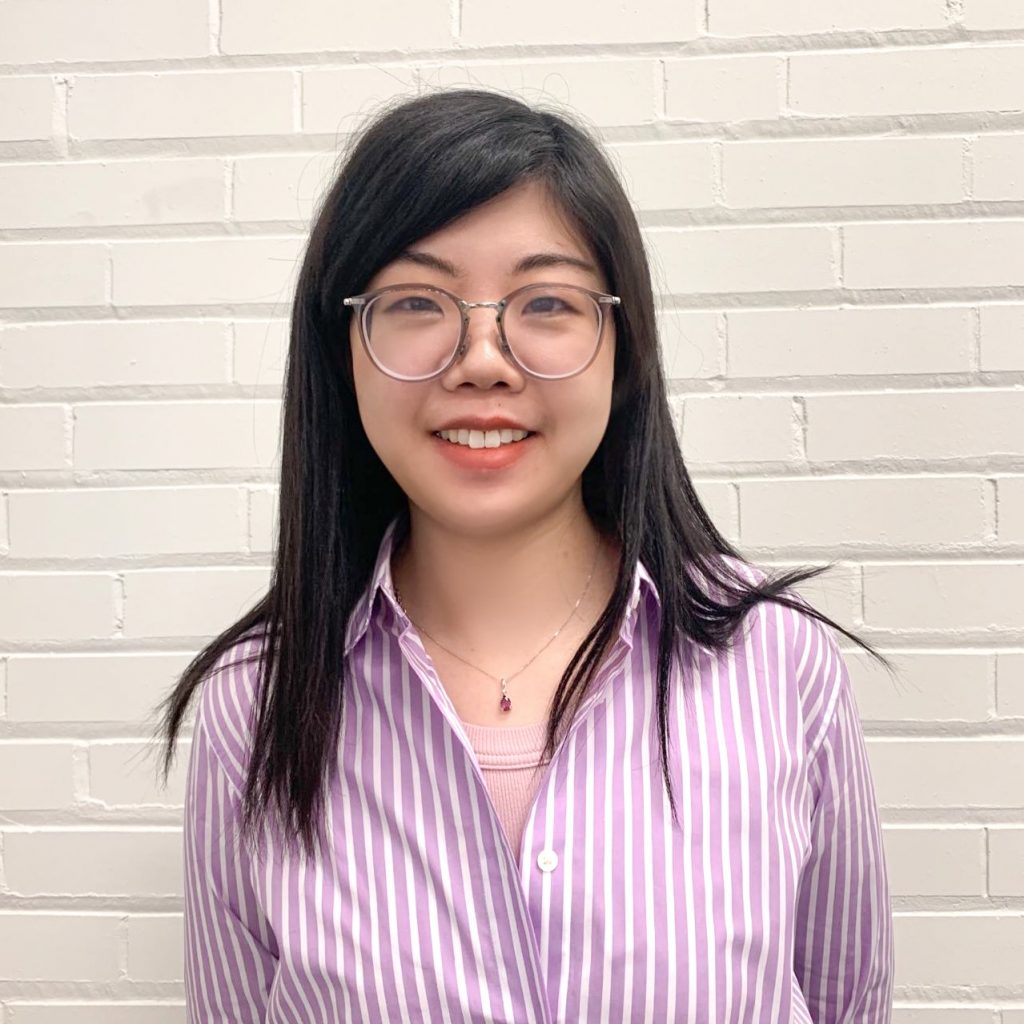
Xiaoyue Cui, Arrive Ready to Study Mathematics
Welcome! I have been teaching within the Department of Mathematics at U of T since January 2021. Prior to that, I served as an Educator Assistant Professor at University of Cincinnati from 2016 to 2020. Currently, I am responsible for instructing and coordinating the comprehensive first-year calculus course, MAT137, which caters to students majoring in mathematics, statistics, physics and computer science. In addition, I am involved in teaching various second-year mathematics courses, such as ordinary differential equations, as well as third-year courses like partial differential equations.
Learn more about Professor Cui
Favourite thing about teaching: I have a deep passion for guiding students through the intricacies of mathematical problem solving and reasoning. As an educator in mathematics, what I truly enjoy is witnessing students effectively communicate their understanding using precise mathematical proof language, as well as observing them learn from their peers through engaging discussions. It brings me great joy to foster an environment where students can develop their mathematical skills and grow as critical thinkers.
What can students expect from your Arrive Ready module? This year, the emphasis of the Arrive Ready to Study Mathematics module will be placed on equipping students with essential skills in note taking, annotating texts, comprehending proofs and honing their proficiency in crafting concise and effective proofs. The module will provide comprehensive guidance on strategies for efficient note taking, critical reading of mathematical proofs and ample opportunities for hands-on practice in constructing and presenting simple proofs.
Top tip for new students: One valuable piece of advice is to make connections and form friendships with fellow students during your time at U of T. The university community comprises a diverse range of individuals, and interacting with them presents an excellent opportunity to broaden your horizons and gain knowledge from various perspectives. By building meaningful relationships with your peers, you can foster a supportive network that will enhance your overall university experience.
Outside the classroom: In my free time, I like to engage in activities that are both therapeutic and entertaining, such as solving puzzles and creating art through painting. These pastimes allow me to unwind and decompress from the stressors of everyday life. Additionally, I have a talent for cooking, which has earned me a reputation among my friends as a skilled culinary artist.
Favourite thing about U of T: I feel immensely grateful to be part of this amazing community, working alongside my wonderful colleagues, who inspire and motivate me every day. Equally, I take great pride in my students, who comprise the vibrant and diverse U of T learning community. Witnessing their growth and achievements fills me with a profound sense of accomplishment and reinforces my passion for teaching.

Robert Gazzale, Arrive Ready to Study Rotman Commerce and Arrive Ready to Study Economics
I went to Georgetown University’s School of Foreign Service thinking I wanted to be a diplomat. That lasted until about midway through my first semester of microeconomics! A major in International Economics enabled me to integrate my newfound passion for economics into my undergraduate degree.
Learn more about Professor Gazzale
I entered the real world after graduation, but economics kept calling. With a little nudge from my partner, I returned to academia, earning a PhD in Economics from the University of Michigan. Teaching— the last 12 years at U of T — remains the most rewarding component of my professional life. In addition to teaching the principles courses — micro and macro — I also teach intermediate microeconomics and an upper-level elective in behavioural and experimental economics (my research fields).
Favourite thing about teaching: What drew me to economics was its ability to organize and explain the world around me. I get no greater thrill than seeing students have the same reaction. Recently, a student came to office hours to discuss how the developer of the online game she played used its market power to keep certain assets scarce in the online world it created. I admit to knowing little about online gaming (although back in the day I was a regularly amongst the high scores on Ms. Pac-Man at my local pizzeria), but I was thrilled to see the student make the connection between economics and what was important in her life.
What can students expect from your Arrive Ready module? Students can expect an instructor excited by the material he is sharing. He hopes it’s infectious.
Top tip for new students: Explore. It will help you identify what you are passionate about, and your studies will be so much less onerous — perhaps even enjoyable — if you love what you are studying. Relatedly, throughout your university career, make sure to take those random “just because it sounds interesting” courses. Sure, in theory you can always take it on Coursera later, but in practice, you probably won’t.
Outside the classroom: I have a running problem. I run six days most weeks, often in training for marathons or ultra-marathons where I have to confront what I believe to be my physical and mental limits.
It is also rumoured that I have a coffee problem. I don’t see the problem.
Favourite thing about U of T: Toronto. My partner and I have had the pleasure living in many wonderful places. We have the honour to now be able to say “Home is Toronto.”
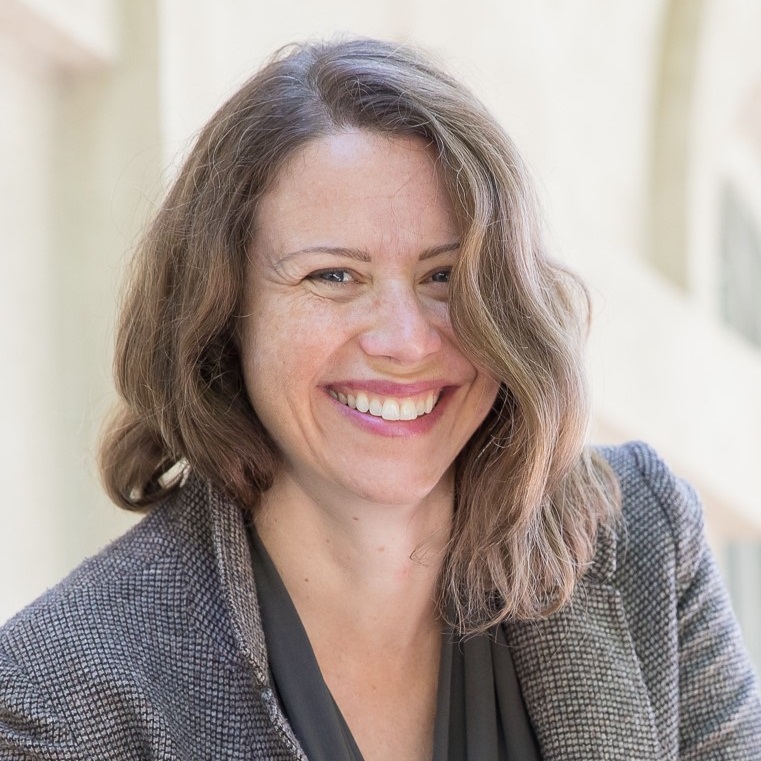
Sarah Wakefield, Arrive Ready to Study Social Sciences
I started teaching in the University of Toronto’s Department of Geography and Planning in 2002 – almost 20 years ago! I was trained as a health geographer and still teach in that area and engage with that academic community. However, my main interest is activism: understanding how individuals and organizations work together to create just, healthy and sustainable communities; what motivates activist work, what sustains it and how it can be most effective.
Learn more about Professor Wakefield
Not surprisingly, this leads into all kinds of interesting questions about engagement, inclusion and justice. My current research explores activism in relation to two topics – food systems and neighbourhood-level community development. In this work, I draw on a range of theoretical perspectives and use a number of different qualitative and quantitative methods to explore my areas of interest. Most of my research involves partnerships with activist groups, community organizations and policy-makers, in order to maximize the usefulness of my work as a tool for social and political change. I teach courses with a wide range of topics, including food systems, medical/health geography and climate change.
Favourite thing about teaching geography: No discipline is as broad as geography! You can study anything and everything through a geographic lens and can combine science, social science and humanities approaches to explore your topic.
Top tip for new students: Don’t be afraid to get connected. U of T can feel like a giant place but it has SO much to offer if you make an effort to get involved and aren’t afraid to ask people – including your instructors – how to get the most out of your experience.
Outside of the classroom: I enjoy gardening, habitat restoration, hiking and cycling
Favourite thing about U of T: Exploring the old buildings – there’s always something new fabulous space to find! University College, Hart House and Knox College are a few of my favorites. And all the great students of course.
